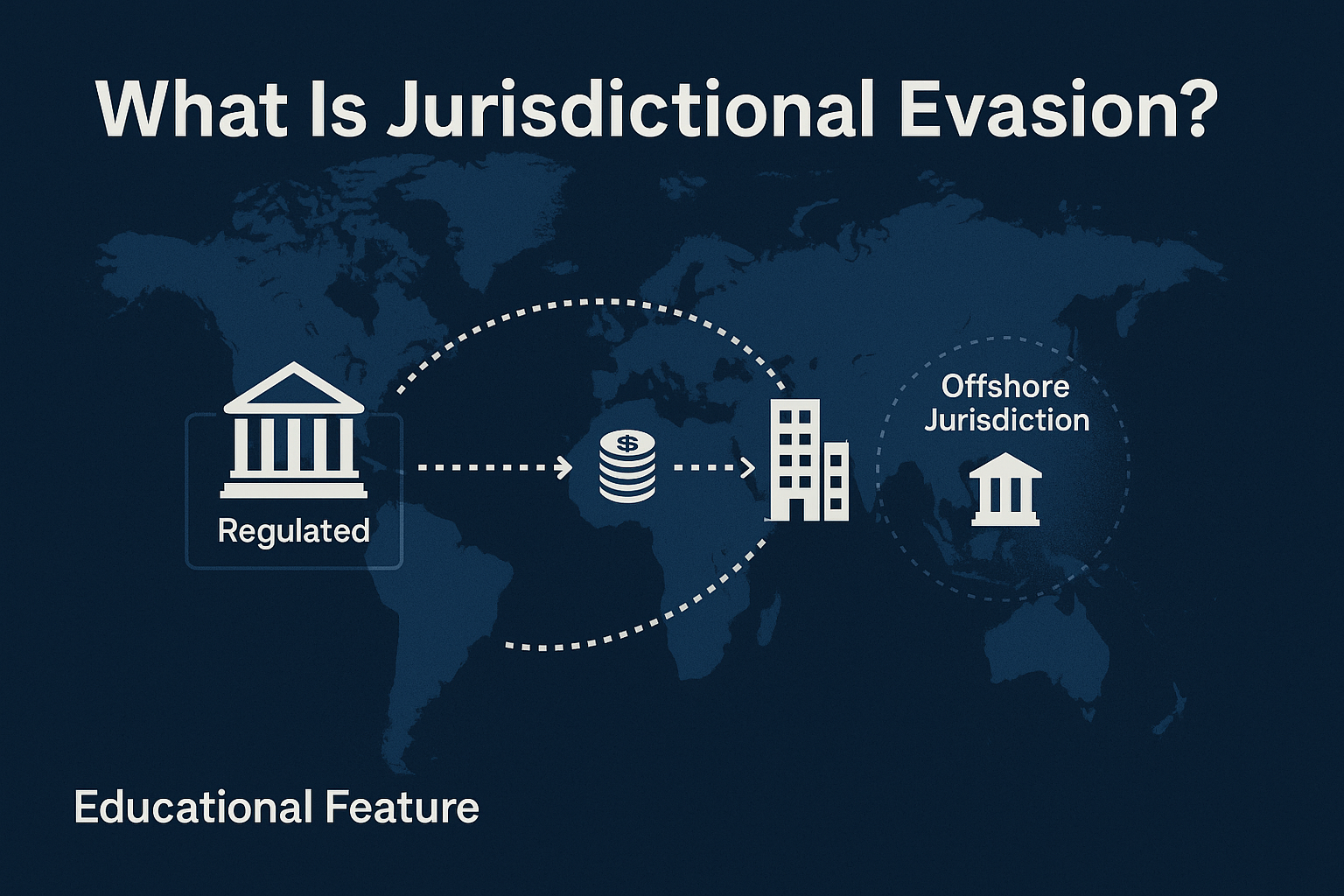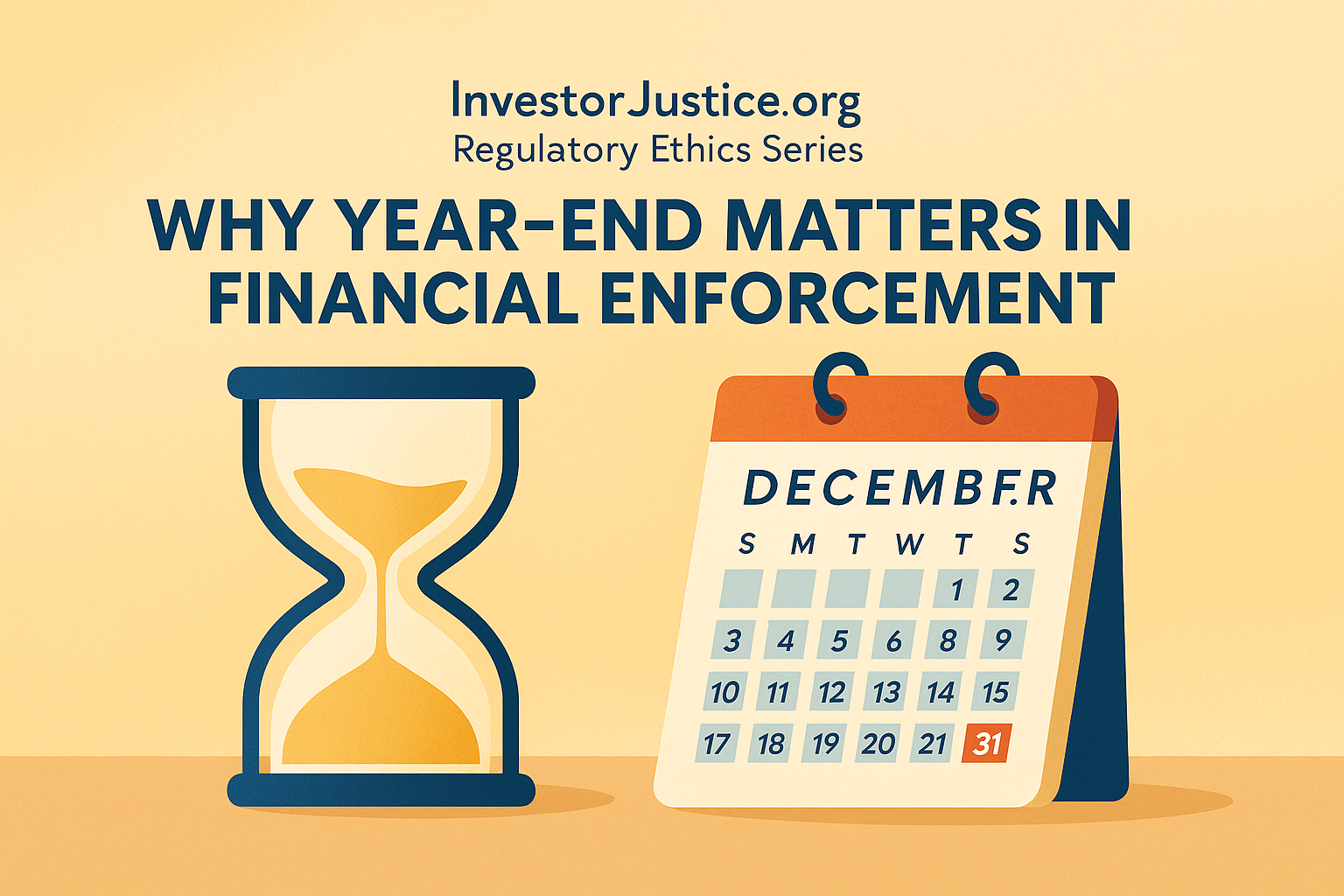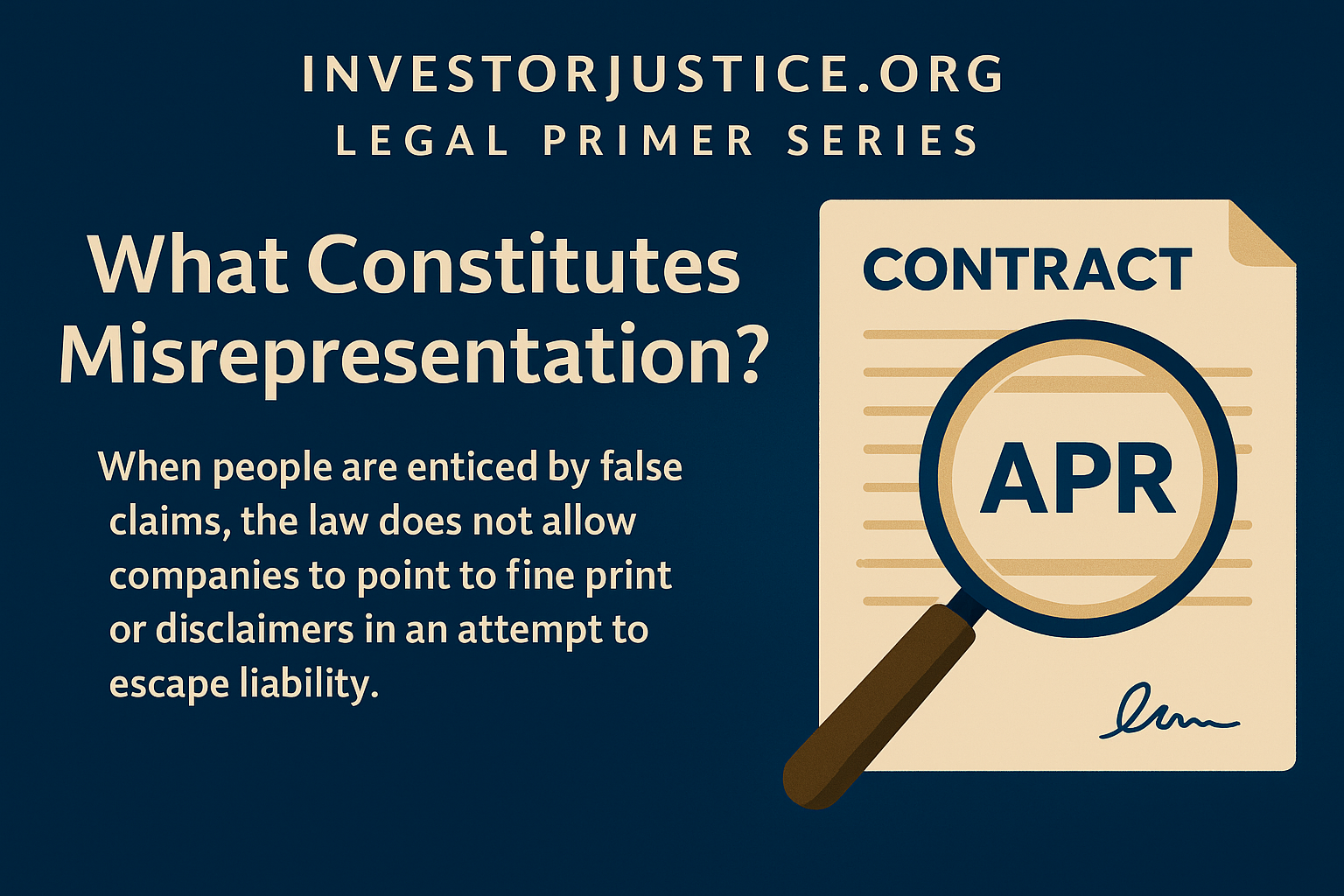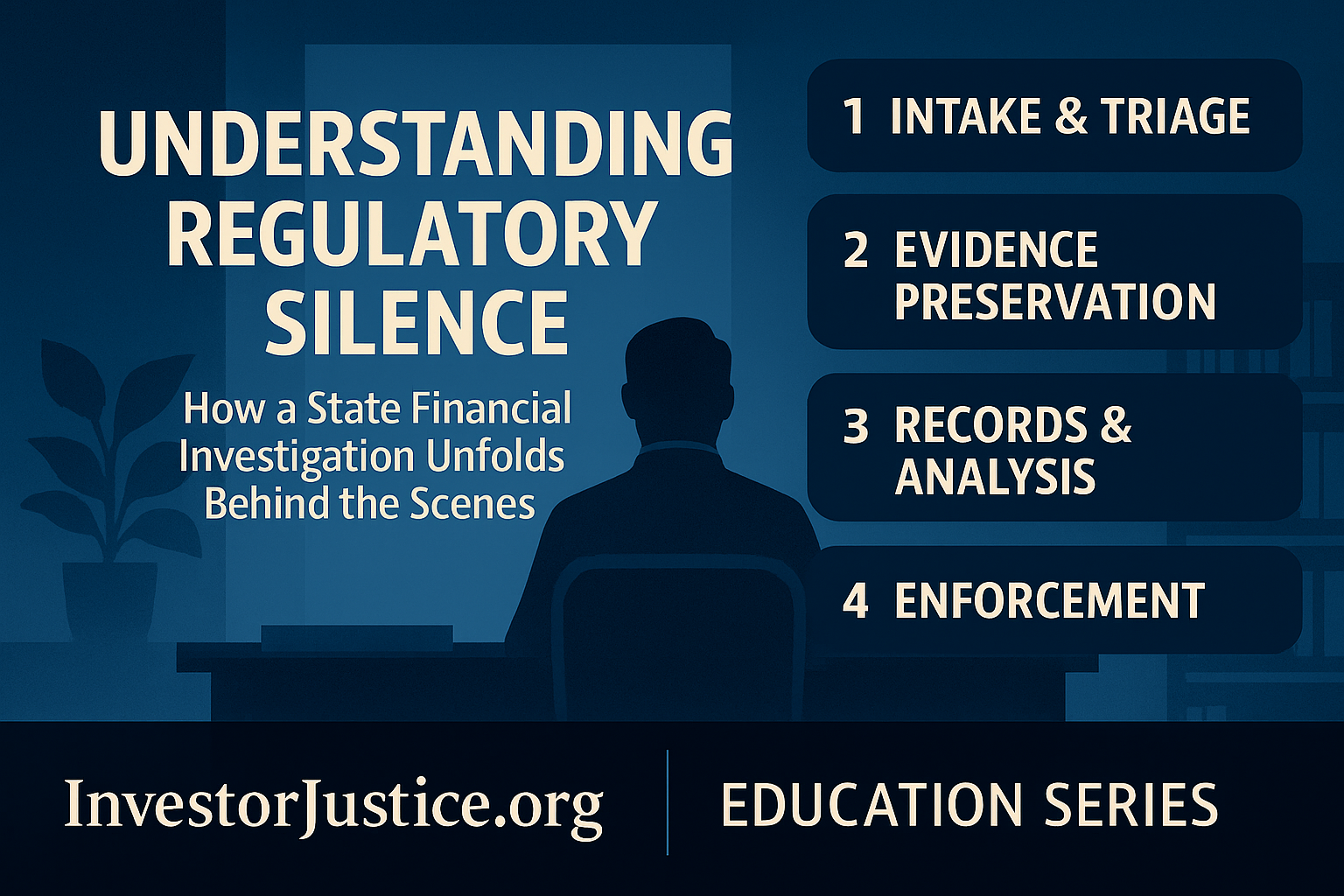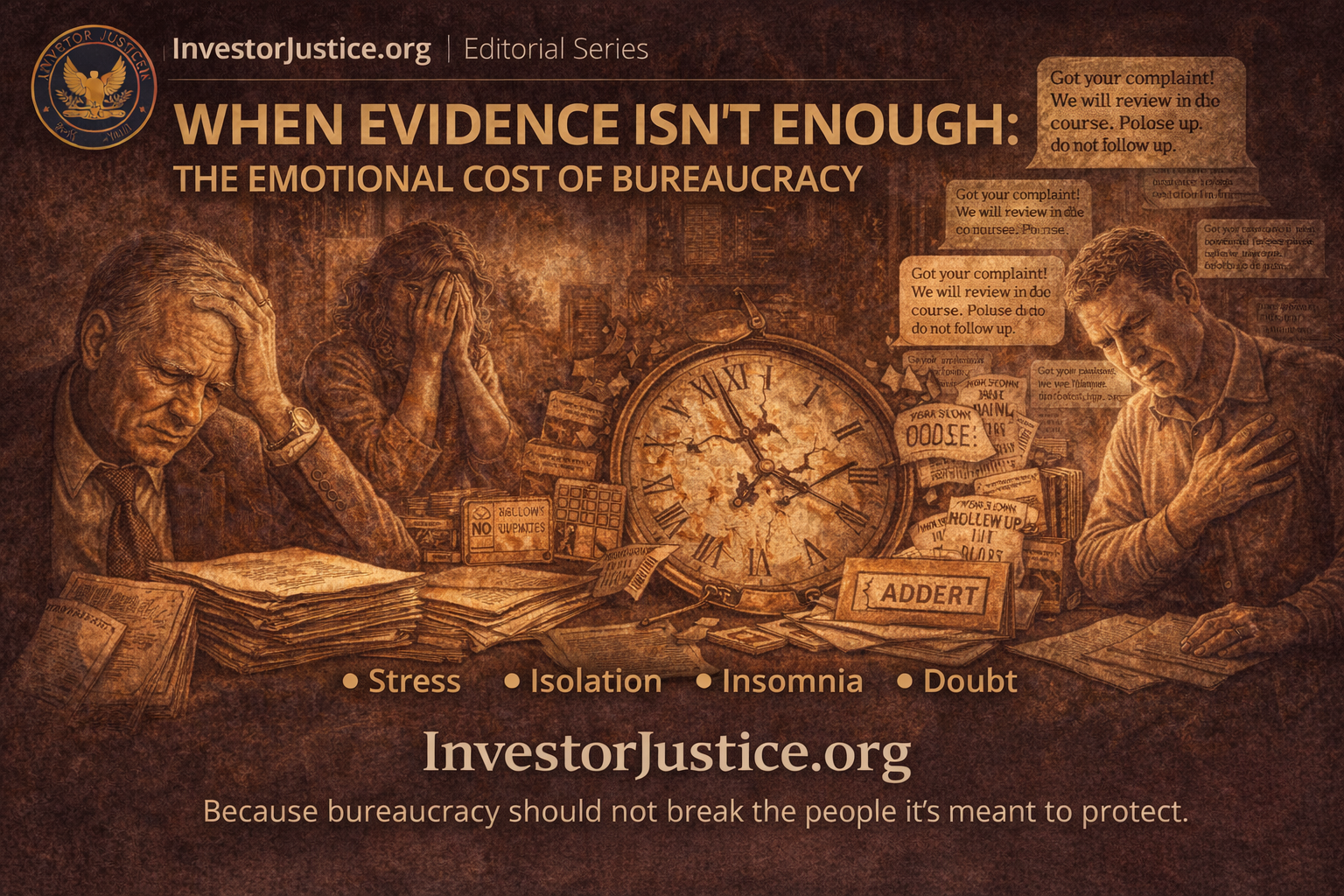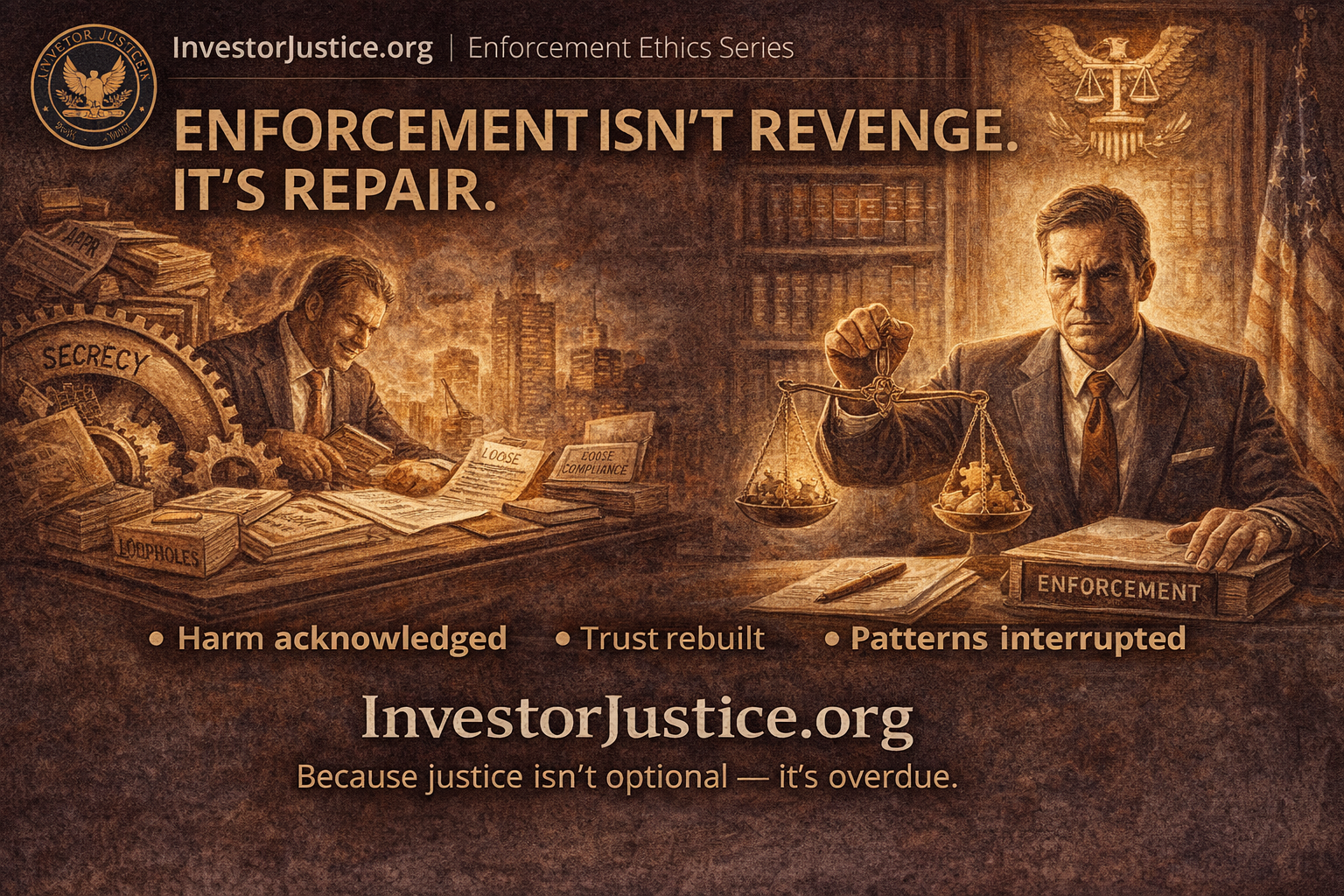Table of Contents
InvestorJustice.org — Educational Feature
You might not recognize the term jurisdictional evasion, but you’ve probably seen it in action.
It’s the quiet maneuver behind many financial scandals, the legal sleight of hand that lets a company market to you from one country but deny responsibility from another.
At its core, jurisdictional evasion is the practice of using cross-border corporate structures to dodge accountability while maintaining the illusion of local legitimacy.
The Basic Playbook
- Market Locally, Operate Globally.
A company advertises, sells, and collects money from consumers in your country, often in your currency, through a slick, localized platform. - Shift Liability Offshore.
When complaints or legal actions arise, the company insists that your contract was technically with a different entity registered in a distant jurisdiction, often a low-regulation territory such as the Cayman Islands, Seychelles, or British Virgin Islands. - Fragment the Trail.
Banking, servers, data storage, and contract entities are each hosted in different locations. This fragmentation makes enforcement agencies spend months, or years, simply figuring out who’s responsible. - Delay Until It Disappears.
Because regulators are cautious about cross-border matters, the company buys time. Each unanswered email, each “ongoing review,” becomes another month of inaction. By the time facts surface, assets have often been moved.
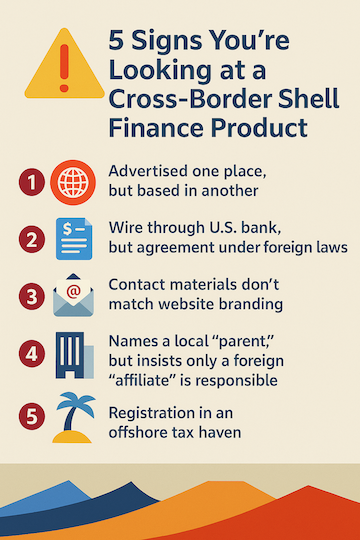
Why It Works
Jurisdictional evasion thrives in the gray space between cooperation and accountability.
No single regulator feels entirely responsible, and each assumes another authority will act first.
The consumer, meanwhile, is told conflicting stories:
“We’re registered here for compliance.”
“Your account is managed there for technical reasons.”
“Please contact our affiliate for further assistance.”
These statements are designed to sound bureaucratic but are strategically disorienting. They transform what should be a simple question, “Who took my money?”, into a jurisdictional labyrinth.
The Human Cost
Behind each case of jurisdictional evasion are real people; retirees, savers, and families who believed they were engaging with a regulated company.
When accountability dissolves across borders, justice becomes unaffordable.
Even if an individual wins, the cost and complexity of litigation across multiple jurisdictions exceed the loss itself.
For regulators, the damage is systemic: every unsanctioned evasion erodes public confidence that rules can keep up with global finance.
How to Recognize the Red Flags
- Offshore Legal Entities
If a company lists a Caribbean or Eastern European holding company in its terms of service, it’s a signal to pause and research. - Unclear Regulatory Oversight
Genuine financial institutions identify their regulators clearly. Phrases like “fully compliant with applicable laws” without naming a specific regulator are evasive by design. - Multiple Corporate Domains
Different websites ending in .io, .ag, .co, .global may seem like branding variations but they’re often legal shields separating liability. - Disclaimers About “Independent Affiliates”
This language suggests intentional distance between the company marketing to you and the one legally responsible for your funds.
Why It Matters
Jurisdictional evasion doesn’t just harm investors, it undermines trust in the rule of law.
When corporations can sell in one country but hide behind another, markets lose integrity.
And when regulators hesitate to act, they send a dangerous message: that clever structuring can outsmart justice.
InvestorJustice.org was built to expose and document these gaps, not to attack innovation, but to defend transparency.
Because every loophole that hides accountability today becomes the blueprint for the next generation of misconduct tomorrow.

